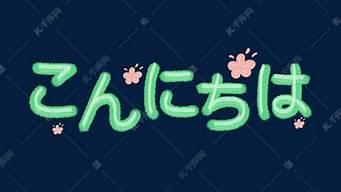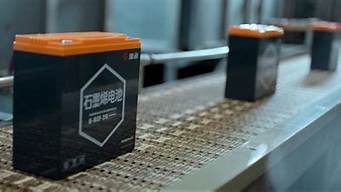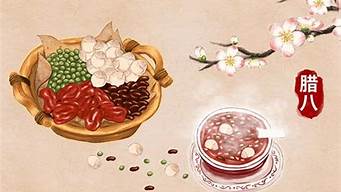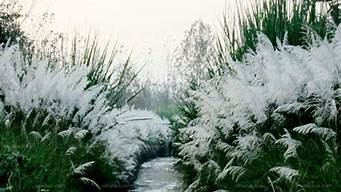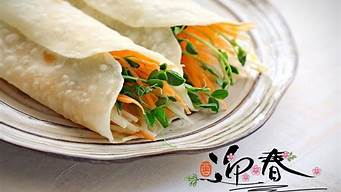This article will talk about the corresponding knowledge points about how to say hello in Japanese and how to say hello in Japanese. I hope it will be helpful to you. Don’t forget to bookmark this site.
How do you say Hello in Japanese?
Generally speaking, when the Japanese want to greet each other for the first time, they can use "おはよう" to say "Hello", or "おはようございます" in a more respectful way.
According to the time, when we first learn Japanese, we often use different sentences according to the time period: we can use "こんにちは" when we meet during the day, and "こんばんは" when we meet at night, but in some occasions There are also usages of "おはよう" or "おはようございます" even at night.
For example, in the Japanese entertainment industry, broadcasting industry, and night markets, no matter when you meet, you always say that-おはようございます. In some workplaces, if the two colleagues meet for the first time today, they can say おはようございます no matter what time it is.
Extended information:
Japanese (Japanese language), the language category belongs to the Japanese-Koguryoic languages (Japanese-Koguryoic languages) or Buyeo languages (Buyeo languages), the number of native speakers There are 125 million people, and the number of people who speak Japanese accounts for 3.1% of the world's population.
The origin of the Japanese language has always been a matter of debate. The Japanese in the Meiji era classified Japanese as an Altaic language family, but this statement of the Altaic language family has been generally denied. Homer Hulbert and Ōno Susumu believe that Japanese belongs to the Dravidian language family , Leon Angelo Serafim (Leon Angelo Serafim) believes that Japanese and Ryukyu languages can form the Japanese language family.
There is a hypothesis that the Austronesian language family, the Zhuang-Dong language family and the Japanese language family can form the Austro-Tai languages (Austro-Tai languages), that is, all three have a common origin.
How to say "Hello" in Japanese
There are different sayings according to different time periods:
こんにちは(ko ni ti ha):你好
2.おはよう(o ha yo u):Good morning
3.こんばんは(kon ba wan):Good evening
4.どうも(do u mo): It also means hello
5. はじめまして (ha ji me ma shi te): It means the first meeting, and it also means hello.
Extended information:
Example sentences:
1. Fangちゃんこんにちは little brother [kid], hello!
2. Today is ,よいお天気ですね Hello, the weather is great!
3. He を ら せ せ ら そ れ こ そ た い へ ん だ If you piss him off, then you will look good [that's amazing] .
4.The woman が君にやかましく言ったのは, 君のためじゃないか. She made trouble with you, not for your own good
5, people (private )が何回もんんでいるのに,回事ぐらいしたらどうだ. People called you several times, but you agreed?
6.やあ, こんにちは Oh, hello!
7. おや, いらっしゃい, hello.
8. それは君の为なのだThat’s for you.
おや, いらっしゃい. Phew, hello.
やあ, こんにちは. Oh hello!
How do you say "Hello" in Japanese?1. Today は (こんにちは). ——konnitiwa Hello. (Used when greeting during normal time during the day)2, おはようございます (a more respectful statement). /おはよう (used between acquaintances). ——ohayou(gozaimasu) Good morning3. Tonight は (こんばんは). ——konbanwa Good evening. 4. お休み (やすみ). /oyasuminasai お失みなさい. — Please rest. / Good night. 5. お元気(げんき)ですか. —— oge n ki de su ka How are you, equivalent to "How are you" in English, a way of saying hello.
Extended information
こんにちは 0 【今日は】
[Sentiment] Hello, good afternoon
Phrase
< strong>1. Today's は (こんにちは). ——konnitiwa Hello. (Used when greeting during normal time during the day)2, おはようございます (a more respectful statement). /おはよう (used between acquaintances). ——ohayou(gozaimasu) Good morning3. Tonight は (こんばんは). ——konbanwa Good evening. 4. お休み (やすみ). /oyasuminasai お失みなさい. — Please rest. / Good night. 5. お元気(げんき)ですか. —— oge n ki de su ka How are you, equivalent to "How are you" in English, a way of saying hello. 6, こんにちは Hello, President7, Mr. こんにちは see below8, こんにちは hello for daytime use 9. こんにちはアン Red-haired girl Annie
Bilingual example sentences
1. Today は (こんにちは). ——konnitiwa Hello. (Used when greeting during normal time during the day)
Hello! I don't know if you are doing well in Japan, you must be very busy studying and working, right?
2, おはようございます (a more respectful statement). /おはよう (used between acquaintances). ——ohayou(gozaimasu) Good morning
Tomoki, hello!
3. This evening は (こんばんは). ——konbanwa Good evening.
"Hello, President, after my consideration, I welcome Qiqi to work in my company, which will be helpful to my company, and we can discuss salary.
< strong>How do you say it in Japanese?
How to pronounce hello in Japanese konnichiwaこんにちは. It is usually written in Chinese characters when meeting during the day, but in this common phrase, only kana is usually written without Chinese characters. Need Note that in this sentence, the pseudonym は is originally pronounced as ha, but when used as a particle, it is pronounced as wa. Some people also write this sentence as こんにちわ according to the pronunciation, but note that this is not a standard way of writing.
Extended information
ohayo good morning
konniqiwa kong you get up during the daytime
konbanwa kongbang wow good evening
goodbye between friends jyane kana ma ta ma it baibai for more casual occasions
situationshimasu west magnetic to simasi for solemn occasions
sayonarasayonara general There is no need to imply the meaning of long-term separation.
The expression of greetings and greetings
おはよう good morning, the Japanese want to say hello when they meet for the first time, and say "Hello" It can be used when you want.
どうもIt is used between people who are close.
おす colloquial language is more popular, and young men use it more.
おっす is very It is colloquial, and it is also a term used among young men. Do not use it to someone who respects you.
How do you say it in Japanese?
How do you say こんにちは in Japanese.
p>
こんんにちは
Meaning: noun: hello, good afternoon.
Fixed collocation: first love よこんにちは first love hello.
Usage: do Subject, quoted. こんにちは, 自の名前はジェーンです. Hello, my name is Jane.
Words with similar meanings are:
おはようございます
Word meaning: noun: good morning, hello (more respectful), hello (used between acquaintances).
Fixed collocation: おはようございます daily greeting.
Usage: as the subject, quoted. おはようございます.あなたは元に遅码です. Good morning. You are totally late.
How do you say hello in Japanese
Hello in Japanese Divided into the following types:
1. 今日は (こんにちは).——konnitiwa hello. (Used when greeting during normal time during the day)2. おはようございます (more respectful saying)./おはよう (used between acquaintances).— —ohayou(gozaimasu) Good morning3. Tonight は (こんばんは). ——konbanwa Good evening. 4. お休み (やすみ). /oyasuminasai お失みなさい. — Please rest. / Good night.
Extended information:
1. Academically, Japanese is divided into four dialects: Kyushu Japanese, Kansai Japanese, Kanto Japanese and Hachijo. It can also be subdivided into thirteen dialects: Sayu dialect, Feizhu dialect, Fengri dialect belonging to Kyushu Japanese, Chinese dialect, Yunbo dialect, Shikoku dialect, Kinki dialect, Hokuriku dialect belonging to Kansai Japanese, belonging to Kanto The Tokai Higashiyama dialect of Japanese, the Kanto dialect, the inland Hokkaido dialect, the Tohoku dialect and the coastal Hokkaido dialect.
2. The origin of Japanese has always been a matter of debate. Modern Japanese have nearly 35% Jomon blood, 32% Yayoi blood and 20% Han blood, which shows the complexity of the origin of Japanese.
3. During the Three Kingdoms period, Chinese characters were introduced to Japan. During the Tang Dynasty, the Japanese invented pseudonyms that were popular among women. The official language is classical Chinese, so modern Japanese is greatly influenced by ancient Chinese. Take the "Example of the National Language Dictionary" in Showa 31 (1956) as an example. In the vocabulary of Japanese, Japanese accounted for 36.6%, and Chinese accounted for 53.6%. The magazine used a survey and research, and came to the conclusion that Japanese accounted for 36.7%, Chinese accounted for 47.5%, and Western languages accounted for nearly 10%.
This is the end of the introduction about how to say hello in Japanese and hello in Japanese, I am very good, thank you for your support!
文章来源于网络或者作者投稿,若有侵权请联系删除,作者:茉莉花开,如若转载,请注明出处:https://www.laoz.net/25974.html

